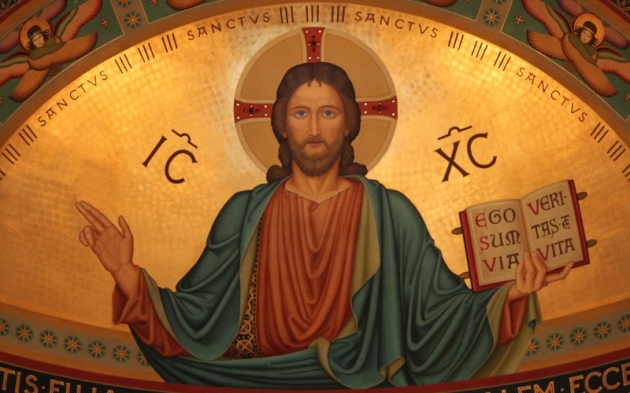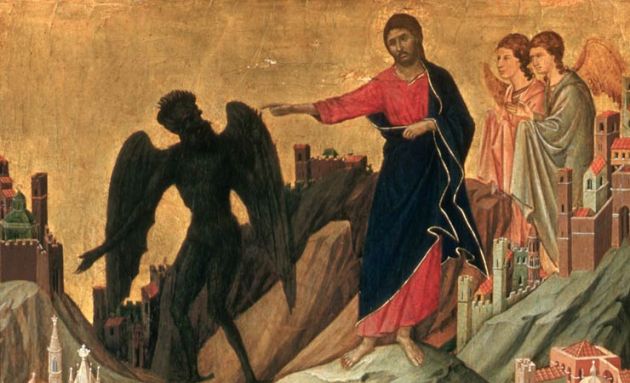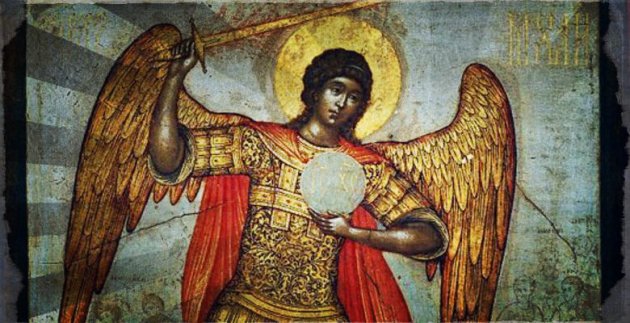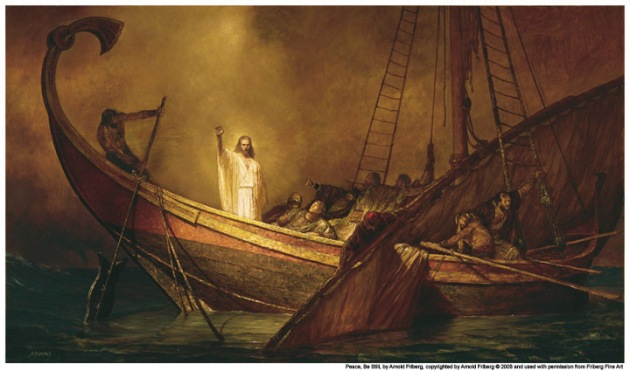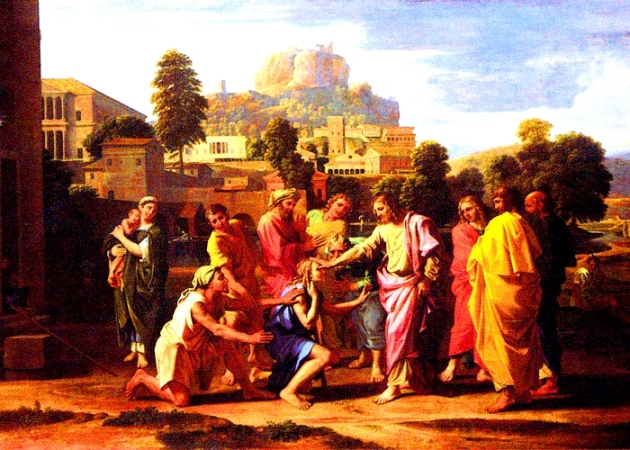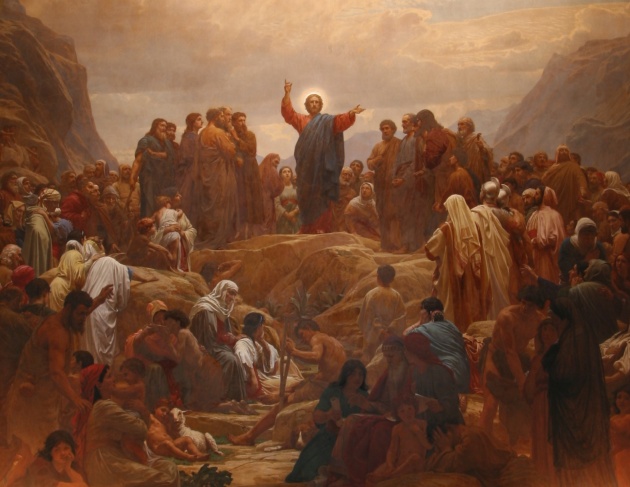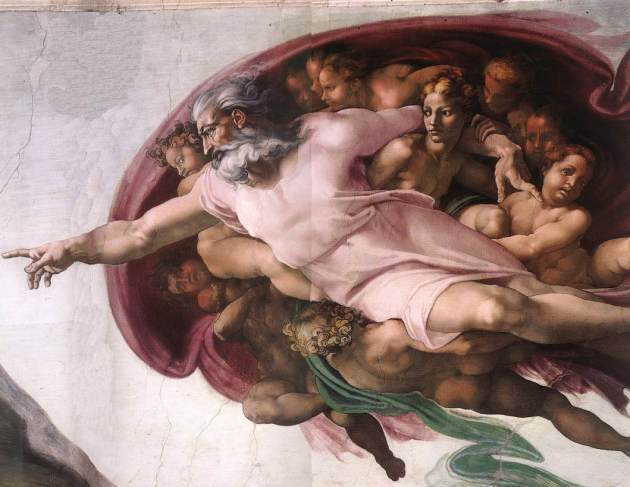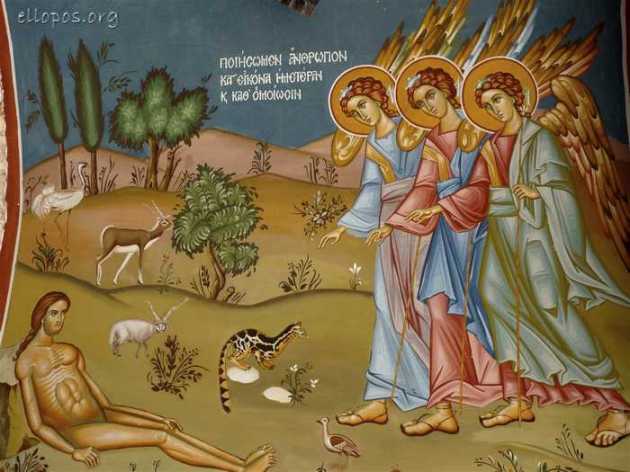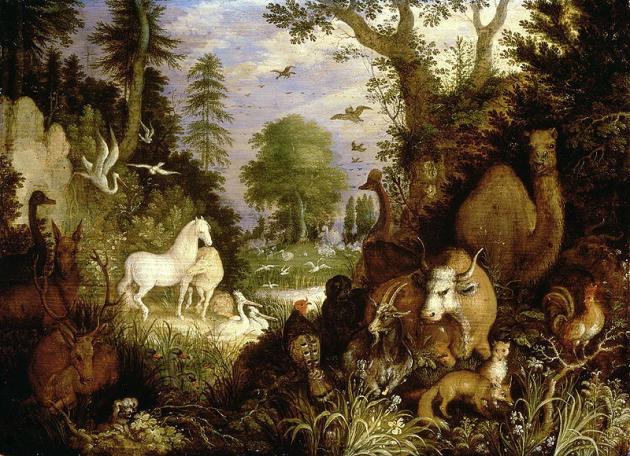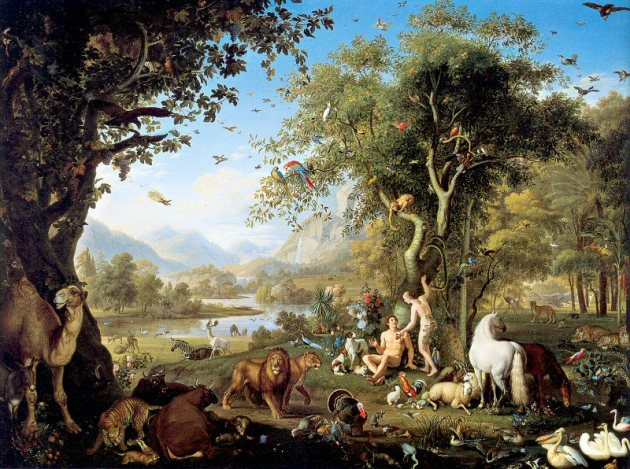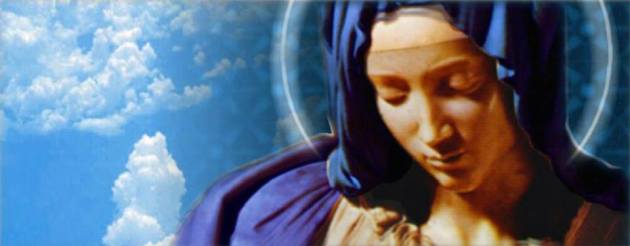Tactics of the Devil
To live the spiritual life according to the teachings of our lord, we must brace ourselves to expect opposition from the evil spirit. This opposition ranges across the whole spectrum of human nature. The devil is a professional accommodator. He adjusts himself to different people in different ways. I cannot recommend a more informative source of knowledge about the devil’s tactics than the two sets of rules for discernment of spirits of St. Ignatius of Loyola. They are the fruit of Ignatius’ own lifetime struggle with evil spirits, in his own personal life and the lives of his followers in the Society of Jesus.
The single most important thing to know about demonic strategy is how differently the devil tempts what I may call, good and bad people.
Good people would be those who are sincerely trying to do God’s will. They are weak and they fail. They make mistakes and they do, at times, offend God. But their underlying philosophy of life is to be faithful to Jesus Christ.
Bad people, on the other hand, are those who are living in sin. They may profess to be Christian believers or they may be in positions of great importance and influence in the church and society. But their philosophy is basically to follow their inclinations, no matter how sinful these may be, in a word, they are living in sin.
What is the technology of the devil who is tempting these two classes of people? For those who are seriously trying to remain faithful to God, the devil is unbelievably clever in trying to induce them to worry, to be anxious, to be discouraged and despondent, and if possible, even to drive them to despair. The devil’s intentions are obvious. He knows such people too well not to know that he would not succeed by tempting them to obvious sins. What he wants to do, however, is to deceive such persons into thinking that a faithful Christian life is burdensome or boring or oppressively difficult. The devil wants to deceive such persons into thinking that such a Christian life is oppressive, it is too much.
by Fr. John A. Hardon, S.J.
How does the devil act in tempting people who are already steeped in sin? His policy is to do the very opposite of how he acts with those who are trying to remain faithful to God. If these sinners have a little faith to begin with, he will deceive them into thinking there really is no such thing as sin. As so many modern psychologists and psychiatrists tell their clients and these are the exact words of a professional psychiatrist published in a book, “Don’t be a slave of your conscience. Satisfy your desires. You are in charge of your own life. You determine what is good and you choose what you want.” If these sinners still have some faith in God, the devil will tell them not to worry. God is merciful. In all these cases, the demonic strategy is clear. Keep sinners in their sinful state of mind, and keep them from ever repenting of their sinful state of soul.
There is one more device of the father of lies that is so important, it is an underlying theme of Pope John Paul II’s encyclical The Splendor of the Truth. This is more than a device or even just a tactic. It is a fundamental premise of demonic strategy. As the Holy father explains, millions of people in the modern world have been deceived into disclaiming that there is such a thing as an inherently or intrinsically evil action. Nothing that a man does is ever evil by itself. It is only the circumstances, or the motives or the situation in which people do things which determine the morality of their conduct. Once people accept this principle, there is nothing which two thousand years of Christianity have taught, are still sins. Why not? Because there are now so many, how well I know, professedly Christian moralists in professedly Catholic universities and seminaries, who teach that abortion, or contraception, or euthanasia, or adultery are not sinful.
Clearly only the devil could have invented such malevolent theories. Yet they have penetrated academic circles that are shaking some parts of the Christian world to its foundation.
by Fr. John A. Hardon, S.J.
Veritatis Splendour
The Devil as Seducer
We should say something more about the tactics of the devil, here as seducer of human minds and wills.
The evil spirit seduces the mind by making error appealing. What we now call advertising goes back to the earliest days of recorded history. The ancient Romans publicized what they wanted the people to get with resources they did not have. Today’s world in the most absolute sense of the word is the age of advertising. The average cost of advertising in America today is over one hundred and fifty billion dollars every year. Not incidentally this amount of money is enough to support more than one nation, especially in Africa and Asia.
The evil spirit capitalizes on this phenomenon and literally seduces millions. He makes them think they need what they want, just because they want it.
Take the tragic instability of family life in America. The annual average is now over one divorce for every two marriages. In the future, it will be even worse as the children of broken homes reach marriageable, and -we have to coin a word- divorceable, age. Yet always divorce and remarriage seem to be the easy way out. It looks like a quick solution to a deep problem. And the press, radio and television sustain the falsehood by telling married people of the benefits of divorce. The laws of our country abet the conspiracy by making it next to impossible to save a marriage if one of the partners wants to be released, as they say, from the tyranny of a husband or wife.
The evil spirit tries to seduce not only the human mind but also the human will. He entices our wills by releasing our passions. He wants to arouse the passions of the flesh and, what is less obvious, the passions of the soul. Why should he want to do this? What connection is there between passion and sin? The connection is that of cause and effect. Sin always leaves its mark on the sinner. It is like throwing a bottle of nitric acid into a person’s face and burning out his eyes. Every sin we commit weakens our powers of reason and intelligent perception. The more serious the sin and the more often committed, the greater is this induced darkening of man’s most precious possession, which makes him most like God, his ability to think. Sinners do not think, they emote, and then write learned volumes defending their irrationality.
How otherwise explain the crimes of a Stalin or a Hitler, who sent millions to their death in the cold deserts of Siberia and the gas chambers and hot ovens of Germany? How otherwise explain the mania of abortion?
No human beings, unless inspired by the devil, could be so cruel as to murder millions of innocent children. Only demonic hatred or lust for power and pleasure could explain what we are now witnessing in one once civilized country after another.
New Testament
As we enter the New Covenant, two remarkable phenomena are recorded. The number of possessed persons in the four Gospels is almost beyond counting. Among the evangelists, St. Mark narrates more cases of possession and of deliverance by Christ than in all the other books of the Bible put together.
The second remarkable feature is the hostility of the evil spirit in the possessed persons. This hostility, we may say, began at the opening of Christ’s public ministry when He was tempted three times by the devil.
All the exorcisms performed by Christ were done in an instant. All He had to do was to tell the devil to depart, and the evil spirit left the victim at the Savior’s words.
Not surprisingly, the possessed persons whom Jesus exorcised were afflicted in some externally manifest way. What is crucially important to understand is that the devil has power to injure or harm his victim, both physically and psychologically. Behind this fact is the mysterious providence of God who may allow the evil spirit to harm human beings in their mental or bodily faculties.
One more thing should be mentioned. The deluge of possessions which began with Christ’s coming into the world has set a pattern for all future time, even to the end of the world.
The history of evangelization reveals that as the Gospel begins to be preached in some part of the world, the devil becomes extraordinarily active among the people being evangelized. If there is one characteristic of the evil spirit, it is his hatred of Christ.
by Fr. John A. Hardon, S.J.
The Strategy of the Devil in Demonic Temptations
by Fr. John A. Hardon, S.J.
It was divinely providential that Christ allowed Himself to be tempted by the devil at the beginning of His public ministry. He is teaching us one of the most important lessons we need to learn in life. If He, the living God in human form, was tempted by the evil spirit, then we must expect to be tempted as well. In order to imitate Christ, we must resist the devil as Christ, Himself, resisted the devil.
As St. John tells us, we are tempted from three sources: by the world, the flesh, and the devil The world is the attractive sinful conduct of other people. The flesh is our concupiscence, the natural inclination that we now have after the fall of the human race, to follow what appeals to us even though it is displeasing to God. The devil is, in some ways, the most powerful enemy we have in the spiritual life.
If there is one thing we learn from the masters of the spiritual life it is to expect to be tempted by the evil spirit. It was the evil spirit who tempted Eve and brought on the fall of the human race. As we reflect on temptations by the devil in our own lives, we must keep in mind who the devil is. He is the evil spirit. Spirit because he is not sensibly perceptible. We cannot hear him with our bodily ears or see him with our bodily eyes. He is an evil spirit whose number is legion and who has been phenomenally successful in seducing untold numbers from their allegiance to God.
St. Ignatius has a key meditation in the Spiritual Exercises on what he calls the Two Standards. The Two Standards correspond to the two leaders in the world who are drawing people to follow them. One leader is Jesus Christ, who inspires believing Christians to dedicate themselves to the extension of His kingdom throughout the world. The other leader is Satan, who is trying to seduce people to follow him for the extension of his demonic kingdom, which, in the words of St Augustine, is the City of Man, which is in constant conflict with the kingdom of Christ. The devil knows that you get nowhere alone, you inspire others to follow you. Then you train your followers and disciples and they will carry on your work. The devil trains his followers to seduce not just people or cities, but whole nations.
by Fr. John A. Hardon, S.J.
Theology of the Body
http://www.ewtn.com/library/papaldoc/jp2tbind.htm
Click to access Theology_of_the_Body.pdf
http://www.nfpoutreach.org/hogan_new_vision.htm
The Character of the Devil
If we wish to resist the temptations of the evil spirit, we must know something about their demonic character. He is a liar by nature. He lied to Eve in the Garden of Eden, telling her that God forbade her and Adam to eat of the forbidden fruit because God was afraid that they, Adam and Eve, would come to know what God knows, the meaning of good and evil.
The devil lied to Judas who betrayed his Master because the devil made Judas think that he could remain a follower of Christ while remaining a friend of Christ’s enemies. The Church teaches that what Judas wanted was money. The saints said that this is why Judas committed suicide. He was deceived. He had gotten his money, but his betrayal and his gain of money brought on the passion of his master, Jesus Christ.
The devil deceived Pilate into condemning Christ to death, even though Pilate knew that Jesus was innocent. Over the centuries this had been the basic tactic of the evil spirit, deceit. Pilate feared losing the friendship of Caesar. Yet, after condemning Jesus, Pilate soon lost his position and died a humiliating cowardly death.
We are talking about who the devil is. The devil became who he is because he envied the majesty of God. Ever since his own fall because of envy, this has been the fundamental means that the devil uses to seduce people from their loyalty to God. It was the devil who inspired Cain to murder his brother Abel out of envy. It was the devil who inspired Saul to want to murder David out of envy. It was the devil who inspired the Scribes and Pharisees to condemn Christ to an ignominious death. Why? Because they envied Christ’s popularity among the people. Thousands followed Jesus, spending whole days without eating in order to listen to Jesus. And so the Scribes and Pharisees tried the most atrocious way of getting people to listen to them. It was the devil, that the Apostle tells us, who seduced Judas to betray his Master out of envy.
Christ tells us, “The devil is a murderer from the beginning.” Unless our first parents had been seduced by the devil, bodily death would never have entered the human race. But the devil is a murderer in the deepest sense. His ambition is to murder human souls. Remember there is a first death, the death of the human body. There is a second death, the death of the soul. The devil’s ambition is to murder human souls by destroying God’s grace in their spiritual lives. Being in hell himself, the devil wants nothing more than to bring human beings to join him in his own eternal damnation.
The devil is not one person. The devil is an organized battalion of malice. Some of the Fathers of the Church speak of two mystical bodies in the world. There is a mystical body of Christ, which is the Church He founded that we call the Church Militant. There is also a mystical body of satan, founded by lucifer, which is literally hell-bent on conquering the mystical body of Christ. This is the main reason why the Church on earth is called the Church Militant. It is most important to recognize the organized character of the legions of the evil spirit. Let us be sure that we recognize the Church Militant as more than just an adjective. As the saints tell us, the followers of Christ have one powerful weapon in battling the devil. That weapon is the Cross. We shall conquer the evil spirit on one condition. That we love the Cross, venerate the Cross, use the Cross to defeat the devil and his followers.
One more description of the devil. The devil uses civil authority, call it the State to war against the followers of Christ. It is surely not coincidental that Pontius Pilate, the civil governor of Palestine, condemned Jesus to a shameful death on the Cross. Over the centuries, the enemies of Christ have used the power of the State to undermine the moral teachings of the Savior. The legalized murder, under State authority, in most of the countries of the world, is surely the work of the devil. He uses State power. As I heard from a man just recently, “I have spent the last four years of my life in prison for praying the rosary before abortuaries.” As I said before, the State is the organized battalion which is being used by the devil to destroy the mystical body of Christ.
by Fr. John A. Hardon, S.J.
Humanae Vitae
Christ the Divine Exorcist
by Fr. John A. Hardon, S.J.
No treatment of angelic existence and activity would be complete without meditating on the exorcisms of Jesus Christ as recorded in the Gospels. We must keep reminding ourselves that there are two kinds of angels, the good and the bad. The good angels are benevolent because they are messengers of God to help us on our way to heaven. The bad angels are permitted by God to tempt us from serving God and joining them in the everlasting suffering, which faith tells us is reserved for those who refuse to repent of their sinful lives.
We could reasonably classify the exorcisms of Christ in the Gospels as examples of His miraculous power. There have been and are exorcists in the Catholic Church. We must be well-trained in demonic strategy and follow the Church’s directives. Otherwise, we will not only not deliver the possessed from domination by the devil; they will positively harm the very persons we want to help and, as I know from experience, can bring tragedy into the life of the exorcist.
In theological language, we may speak of Christ’s exorcisms as miraculous manifestations of His divine power. What is miraculous about Christ’s deliverance of possessed people is the simplicity of how Christ made the deliverance, the few words He spoke, especially the immediate response of the evil ones in obeying His commands when they were told by Christ to leave their victims.
Exorcisms in St. Mark
There are more exorcisms performed by Christ in the New Testament than in the whole recorded biblical revelation. As we indicated before, this is characteristic of the evil spirit over the centuries. The moment he sees that his dominion over a people is threatened by the proclamation of the Gospel, he reacts as you would expect a devil to react. He fights back, he resists the teaching of God’s revealed truth. He terrifies the people so as not to accept the Gospel. He threatens even worse evils if the people are intent on following Jesus Christ.
Consistent, therefore, with his evil genius, the devil will do everything he can to intimidate those who are afraid of what the devil might do. This is brought out in one mission territory after another. It is always the same pattern. The non-Christian religions are in large measure under the guidance of evil spirits. We who have the true faith are not surprised at how far the devil will go to prevent anyone standing in the way of his evil designs.
Although all four Gospels give us accounts of exorcisms performed by Jesus, it is especially in the Gospel of Mark that the number of these deliverances are most numerous and most revealing.
How do we characterize the exorcisms of Christ as recorded by the disciple of St. Peter? First of all, the sheer number of these exorcisms in Mark’s gospel in extraordinary. There are more exorcisms performed by Jesus in the gospel of St. Mark than in all the other books of the whole bible put together. Moreover, Christ performed these exorcism with effortless ease. No matter how severely possessed or how vicious the behavior of the devil’s victims. The master exorcist delivered these victims by a single word or a single command.
The exorcisms described by St. Mark follow the pattern which was current in first century Palestine. The devils from whom their victims were delivered were simply called evil spirits. No doubt there possession of a person would have bodily manifestations, but the cause was the entrance of a spiritual being who dominated his human victim. These spirits are called evil because they produced evil results: harm to the body, convulsions, violence, and such evil behavior as no human being on his own could expect. It was malicious and malevolent and mal-producing as are behind a human capacity to effect.
Also remarkable about Christ’s exorcisms is that He used none of the then contemporary exorcist’s rituals or spells. He simply expelled the demons by the power of His command. We may therefore conclude to the deepest significance of these exorcist narratives in the Gospels. Jesus inaugurated the final struggle against all evil and, with emphasis, against the evil spirits. He foreshadowed the final victory over the powers of darkness.
We shall in sequence narrate just two of Christ’s exorcisms as recorded in St. Mark. They are significant for the peace of Christ’s deliverance of possessed persons produced in their victims.
The Exorcism in the Synagogue
Not surprisingly, in the opening chapter of his gospel, St. Mark narrates the deliverance of a possessed man in a synagogue. As soon as Jesus entered the synagogue, the demoniac cried out, “What have we to do with you, Jesus of Nazareth? Have you come to destroy us? I know who you are, the Holy One of God.” Jesus rebuked him, saying, “Hold your peace and go out of the man.” The unclean spirit, convulsing his victim and crying out with a loud voice, went out of him.
No wonder the crowd in the synagogue was all amazed. They asked among themselves, “What is this? What new doctrine is this? With authority He commands even the unclean spirits, and they obey Him. The news of this was spread immediately into all the region round about Galilee.
The Devils in Gerasa
Christ had just calmed the storm at sea and crossed through the other side to the country of the Gerases. As soon as He stepped out of the boat, there met Him a man from the tombs who had an unclean spirit. No one could bind him, even with chains. No one was able to control him. Day and night he was in the tombs and on the mountains, howling and gashing himself with stones.
When he saw Jesus from a distance, he ran and worshipped Him and cried out with a loud voice, “What have I to do with you, Jesus, Son of the Most High? I adjure you by God, to not torment me.” At this point, Jesus asked the possessed man, “What is your name?” He answered, “My name is Legion, for we are many.” Now a great herd of swine was there on the mountainside feeding. The devils kept entreating Jesus, saying, “Send us into the swine.” Immediately, Jesus gave them permission. The unclean spirits came out and entered into the swine, and the herd, some two thousand in number, rushed down with great violence where they were drowned in the sea. Understandably, the swine herds fled and reported what had happened. They begged Him to leave that part of the country because of the loss of so many swine. At this point, the man who had just been delivered from the devil, begged Jesus to become one of His followers. He was told to go back to his family and tell these people about the exercise of mercy that he had just received.
Joy of the Gospel
How to Deal with Demonic Temptations
The apostle St. Peter tells us how to cope with the evil spirit. Peter knew because already in his lifetime the devil had seduced many who had been followers of Christ. The quotation is a bit lengthy but is worth giving in full.
All of you practice humility towards one another. For God resists the proud and gives grace to the humble. Humble yourselves, therefore, under the mighty hand of God that He may exalt you in the time of visitation. Cast all your anxieties upon Him, because He cares for you. Be sober, be watchful! For your adversary the devil, as a roaring lion, goes about seeking someone to devour. Resist him steadfast in the faith, knowing that the same suffering befalls your brethren all over the world (I Peter 5:5-8).
What, then, is the first and indispensable condition for resisting the evil spirit? It is a deep, sincere humility of heart.
As St. Peter tells us, we are not to be afraid of the evil spirit. Why not? Because we have the grace of God, one of whose main purposes is to resist the machinations of the devil. At the same time we must be watchful. This means we must expect to be tempted by the father of lies. We must have a clear mind in order to distinguish inspirations from the good spirit and instigations of the evil spirit.
We must be sober, which is a strange word in our drink-preoccupied society. Sobriety, in the language of scripture, means temperance in the use of the creatures in our lives. God wants us to enjoy some of the things that He gives us. But, He also wants us to endure, and endure many creatures; He wants us to remove some creatures; and He wants us to sacrifice many things that are naturally pleasing. All of this is locked up in that strange word, be sober.
The devil knows us very well. He cannot read our secret thoughts but he can conclude to our inner spirit by our external behavior, and even, as exorcists tell me, the emotional expressions on our face. When St. Peter tells us not to be afraid of the evil spirit he means more than meets the eye. He means that we should not even show by our emotions that we are afraid of the devil. Our emotional expressions, in what we say, how we react, how we allow our feelings to manifest themselves in our bodies – all of these are dangerous in dealing with the devil. We must not only be at peace inside, but manifest a peaceful attitude in our external behavior. The devil is especially influential in mastering those who are afraid of him.
The courageous behavior of Christ in His temptation by the devil is a pattern of how we should deal with the evil spirit.
One strong recommendation, never engage the devil in conversation. I mean never. If you must tell the devil to depart; if you want the devil to go, tell him, but never engage him in what could even be interpreted as a friendly conversation. I have had enough experience of people foolish enough to engage in conversation with the devil who have suffered disastrous consequences as a result.
One more recommendation based on St. Peter’s injunction. Be strong in your faith. This is not a pious cliché. It means that we exercise our faith, courageously undertaking what we believe God wants us to do and not be afraid of the consequences. The faith we need is the faith of living martyrs in our day. We are to be witnesses of the power of Christ as a divine exorcist and never allow ourselves to doubt that God’s grace in our lives is more powerful than all the demons of hell.
Pray daily to St. Michael the Archangel. He was the first leader of those who led the fallen spirits into their eternal damnation. St. Michael is our chief commander in dealing with the strategy of the master of evil and the prince of this world. Christ assured us He has overcome the world, which means that we have received from Christ to do the same in our demonically plagued society at the close of the twentieth century.
Mary, Queen of martyrs, obtain for us from your Son the wisdom and the power of successfully resisting the machinations of the devil in our lives. Your divine Son told us He has overcome the world and the prince of this world by His life and death on the Cross. Obtain for us the light we need to recognize the instigation of the evil one and the strength to witness to our faith in Christ, the Conqueror of evil until we enter the company of the angels who won their battle against the spirits of evil at the beginning of time. Amen.
Our Lord did not engage the devil in conversation. He finally told the evil spirit, “Be gone, Satan!” In one imperative sentence, this is how we are to deal with the devil in our world. Never allow him to seduce us by his clever snares. Assume that he is a liar.
by Fr. John A. Hardon, S.J.
Christ the Divine Exorcist
The following of Christ is the bedrock foundation of living authentic Christianity. That is why God became man. He became man so He might be able to die for our salvation on the Cross. But He also became man to live a human life on earth and thus teach us how we are to live our lives in anticipation of a blessed eternity.
We do not ordinarily think of imitating Christ as an exorcist. There are exorcists authorized by the Church who have successfully delivered people from possession by the devil. This is not the focus of our meditation. As we know, Christ is the living God who assumed a human nature. Unlike Christ, all we have is a human nature. But like Christ we share in His divinity. This, in fact, is a standard definition of divine grace. It is the participation by divine favor in what belongs by right only to the Infinite God.
As the Lord of all things visible and invisible, Christ has power over the spirits of evil which no one else can possess. But our share in His divinity, by the grace we have received from Him, gives us a corresponding share in His power over the devil. In practice, this means we are to “exorcise” the devil in our own lives by the two powers or virtues of humility and courage.
We saw earlier how St. Peter stresses the importance of humility when he introduces his description of the activity of the devil in the world of human beings. As strange as it may seem, St. Thomas says that some of the angels fell from their exalted state because they refused to accept the supernatural life of charity by which they could live together as a loving community in humble obedience to the Holy Trinity.
The word ‘humility’ is deceptively ambiguous. The humility that we need to cope with the evil spirit is the humility of recognizing our own natural inability to conquer the forces of demonic evil in our lives. It is the humility of realizing, as Christ warned us, that “Without me you can do nothing.” Without me you cannot overcome the devil. Without my grace, you are helpless against the powers of evil in this world. Without me you are hopeless in thinking you can match the evil genius of the legions of hell.
Proud people are no match for the devil. Either we cultivate the humility that comes from God’s grace or we shall be further casualties of the prince of this world.
Humility is the foundation for delivering the devil for our own lives and the lives of others. But this humility must be joined by a corresponding superhuman courage, born of grace, in dealing with the world of demons.
Courage in general, is firmness of spirit. It is a steadiness of will in doing good in spite of difficulties faced in the performance of our duty. There are two levels in the practice of courage: one is the suppression of an inordinate fear and the other is the curbing of recklessness. The control of fear is the main role of courage. It is especially the mastery of inordinate fear that we need to cope with the devil. But once again, as with humility, the courage we need to deliver ourselves from control by the devil is more than we have by our own human nature. We need the grace of God. We need not only the virtue of fortitude, but the gift of fortitude. We need to receive a share in Christ’s own superhuman courage which He practiced during His mortal and visible stay on earth.
That is why Christ instituted a special sacrament, precisely for this purpose. It is called the sacrament of confirmation, which the Church defines as a sacrament of spiritual strengthening. We are confirmed in order to strengthen our naturally fearful wills to not only not fear the devil, but resist him.
What the devil most wants is to terrify us in of following of Christ. We dare not be afraid of this prince of darkness, at the risk of being “possessed” by the prince of this world.
Mary, humble handmaid of the Lord and Virgin most powerful, obtain for us something of your deep humility and fearless fortitude. You knew from experience how to deal with the evil spirit who had so deeply entered the world which crucified your Son. Dare we address you as the Mother of exorcists since you are the mother of the Divine Exorcist in whose power we share by the grace He has so generously given to us. Following your example, and relying on your influence with Jesus, we are confident of reaching that heavenly glory which is reserved to those who have overcome the organized spirit of evil in our lives. Amen.
Dallas Carmelites, Conference #13, Wednesday 2/28/96, 2:30 PM
Christ the Divine Exorcist
by Fr. John A. Hardon, S.J.
When tempted, invoke your Angel. he is more eager to help you than you are to be helped! Ignore the devil and do not be afraid of him: He trembles and flees at the sight of your Guardian Angel. St John Bosco
Genesis 1 King James Version (KJV)
1 In the beginning God created the heaven and the earth.
2 And the earth was without form, and void; and darkness was upon the face of the deep. And the Spirit of God moved upon the face of the waters.
3 And God said, Let there be light: and there was light.
4 And God saw the light, that it was good: and God divided the light from the darkness.
5 And God called the light Day, and the darkness he called Night. And the evening and the morning were the first day.
6 And God said, Let there be a firmament in the midst of the waters, and let it divide the waters from the waters.
7 And God made the firmament, and divided the waters which were under the firmament from the waters which were above the firmament: and it was so.
8 And God called the firmament Heaven. And the evening and the morning were the second day.
9 And God said, Let the waters under the heaven be gathered together unto one place, and let the dry land appear: and it was so.
10 And God called the dry land Earth; and the gathering together of the waters called he Seas: and God saw that it was good.
11 And God said, Let the earth bring forth grass, the herb yielding seed, and the fruit tree yielding fruit after his kind, whose seed is in itself, upon the earth: and it was so.
12 And the earth brought forth grass, and herb yielding seed after his kind, and the tree yielding fruit, whose seed was in itself, after his kind: and God saw that it was good.
13 And the evening and the morning were the third day.
14 And God said, Let there be lights in the firmament of the heaven to divide the day from the night; and let them be for signs, and for seasons, and for days, and years:
15 And let them be for lights in the firmament of the heaven to give light upon the earth: and it was so.
16 And God made two great lights; the greater light to rule the day, and the lesser light to rule the night: he made the stars also.
17 And God set them in the firmament of the heaven to give light upon the earth,
18 And to rule over the day and over the night, and to divide the light from the darkness: and God saw that it was good.
19 And the evening and the morning were the fourth day.
20 And God said, Let the waters bring forth abundantly the moving creature that hath life, and fowl that may fly above the earth in the open firmament of heaven.
21 And God created great whales, and every living creature that moveth, which the waters brought forth abundantly, after their kind, and every winged fowl after his kind: and God saw that it was good.
22 And God blessed them, saying, Be fruitful, and multiply, and fill the waters in the seas, and let fowl multiply in the earth.
23 And the evening and the morning were the fifth day.
24 And God said, Let the earth bring forth the living creature after his kind, cattle, and creeping thing, and beast of the earth after his kind: and it was so.
25 And God made the beast of the earth after his kind, and cattle after their kind, and every thing that creepeth upon the earth after his kind: and God saw that it was good.
26 And God said, Let us make man in our image, after our likeness: and let them have dominion over the fish of the sea, and over the fowl of the air, and over the cattle, and over all the earth, and over every creeping thing that creepeth upon the earth.
27 So God created man in his own image, in the image of God created he him; male and female created he them.
28 And God blessed them, and God said unto them, Be fruitful, and multiply, and replenish the earth, and subdue it: and have dominion over the fish of the sea, and over the fowl of the air, and over every living thing that moveth upon the earth.
29 And God said, Behold, I have given you every herb bearing seed, which is upon the face of all the earth, and every tree, in the which is the fruit of a tree yielding seed; to you it shall be for meat.
30 And to every beast of the earth, and to every fowl of the air, and to every thing that creepeth upon the earth, wherein there is life, I have given every green herb for meat: and it was so.
31 And God saw every thing that he had made, and, behold, it was very good. And the evening and the morning were the sixth day.
Genesis 2 King James Version (KJV)
2 Thus the heavens and the earth were finished, and all the host of them.
2 And on the seventh day God ended his work which he had made; and he rested on the seventh day from all his work which he had made.
3 And God blessed the seventh day, and sanctified it: because that in it he had rested from all his work which God created and made.
4 These are the generations of the heavens and of the earth when they were created, in the day that the Lord God made the earth and the heavens,
5 And every plant of the field before it was in the earth, and every herb of the field before it grew: for the Lord God had not caused it to rain upon the earth, and there was not a man to till the ground.
6 But there went up a mist from the earth, and watered the whole face of the ground.
7 And the Lord God formed man of the dust of the ground, and breathed into his nostrils the breath of life; and man became a living soul.
8 And the Lord God planted a garden eastward in Eden; and there he put the man whom he had formed.
9 And out of the ground made the Lord God to grow every tree that is pleasant to the sight, and good for food; the tree of life also in the midst of the garden, and the tree of knowledge of good and evil.
10 And a river went out of Eden to water the garden; and from thence it was parted, and became into four heads.
11 The name of the first is Pison: that is it which compasseth the whole land of Havilah, where there is gold;
12 And the gold of that land is good: there is bdellium and the onyx stone.
13 And the name of the second river is Gihon: the same is it that compasseth the whole land of Ethiopia.
14 And the name of the third river is Hiddekel: that is it which goeth toward the east of Assyria. And the fourth river is Euphrates.
15 And the Lord God took the man, and put him into the garden of Eden to dress it and to keep it.
16 And the Lord God commanded the man, saying, Of every tree of the garden thou mayest freely eat:
17 But of the tree of the knowledge of good and evil, thou shalt not eat of it: for in the day that thou eatest thereof thou shalt surely die.
18 And the Lord God said, It is not good that the man should be alone; I will make him an help meet for him.
19 And out of the ground the Lord God formed every beast of the field, and every fowl of the air; and brought them unto Adam to see what he would call them: and whatsoever Adam called every living creature, that was the name thereof.
20 And Adam gave names to all cattle, and to the fowl of the air, and to every beast of the field; but for Adam there was not found an help meet for him.
21 And the Lord God caused a deep sleep to fall upon Adam, and he slept: and he took one of his ribs, and closed up the flesh instead thereof;
22 And the rib, which the Lord God had taken from man, made he a woman, and brought her unto the man.
23 And Adam said, This is now bone of my bones, and flesh of my flesh: she shall be called Woman, because she was taken out of Man.
24 Therefore shall a man leave his father and his mother, and shall cleave unto his wife: and they shall be one flesh.
25 And they were both naked, the man and his wife, and were not ashamed.
Genesis 3 King James Version (KJV)
3 Now the serpent was more subtil than any beast of the field which the Lord God had made. And he said unto the woman, Yea, hath God said, Ye shall not eat of every tree of the garden?
2 And the woman said unto the serpent, We may eat of the fruit of the trees of the garden:
3 But of the fruit of the tree which is in the midst of the garden, God hath said, Ye shall not eat of it, neither shall ye touch it, lest ye die.
4 And the serpent said unto the woman, Ye shall not surely die:
5 For God doth know that in the day ye eat thereof, then your eyes shall be opened, and ye shall be as gods, knowing good and evil.
6 And when the woman saw that the tree was good for food, and that it was pleasant to the eyes, and a tree to be desired to make one wise, she took of the fruit thereof, and did eat, and gave also unto her husband with her; and he did eat.
7 And the eyes of them both were opened, and they knew that they were naked; and they sewed fig leaves together, and made themselves aprons.
8 And they heard the voice of the Lord God walking in the garden in the cool of the day: and Adam and his wife hid themselves from the presence of the Lord God amongst the trees of the garden.
9 And the Lord God called unto Adam, and said unto him, Where art thou?
10 And he said, I heard thy voice in the garden, and I was afraid, because I was naked; and I hid myself.
11 And he said, Who told thee that thou wast naked? Hast thou eaten of the tree, whereof I commanded thee that thou shouldest not eat?
12 And the man said, The woman whom thou gavest to be with me, she gave me of the tree, and I did eat.
13 And the Lord God said unto the woman, What is this that thou hast done? And the woman said, The serpent beguiled me, and I did eat.
14 And the Lord God said unto the serpent, Because thou hast done this, thou art cursed above all cattle, and above every beast of the field; upon thy belly shalt thou go, and dust shalt thou eat all the days of thy life:
15 And I will put enmity between thee and the woman, and between thy seed and her seed; it shall bruise thy head, and thou shalt bruise his heel.
16 Unto the woman he said, I will greatly multiply thy sorrow and thy conception; in sorrow thou shalt bring forth children; and thy desire shall be to thy husband, and he shall rule over thee.
17 And unto Adam he said, Because thou hast hearkened unto the voice of thy wife, and hast eaten of the tree, of which I commanded thee, saying, Thou shalt not eat of it: cursed is the ground for thy sake; in sorrow shalt thou eat of it all the days of thy life;
18 Thorns also and thistles shall it bring forth to thee; and thou shalt eat the herb of the field;
19 In the sweat of thy face shalt thou eat bread, till thou return unto the ground; for out of it wast thou taken: for dust thou art, and unto dust shalt thou return.
20 And Adam called his wife’s name Eve; because she was the mother of all living.
21 Unto Adam also and to his wife did the Lord God make coats of skins, and clothed them.
22 And the Lord God said, Behold, the man is become as one of us, to know good and evil: and now, lest he put forth his hand, and take also of the tree of life, and eat, and live for ever:
23 Therefore the Lord God sent him forth from the garden of Eden, to till the ground from whence he was taken.
24 So he drove out the man; and he placed at the east of the garden of Eden Cherubims, and a flaming sword which turned every way, to keep the way of the tree of life.
The Bible speaks of sex within marriage as pure (Hebrews 13:4). Let marriage be held in honor among all, and let the marriage bed be undefiled, for God will judge the sexually immoral and adulterous.
The Bible speaks of sex outside of marriage as immoral and adulterous (1 Corinthians 6:13,13 “Food is meant for the stomach and the stomach for food”—and God will destroy both one and the other. The body is not meant for sexual immorality, but for the Lord, and the Lord for the body.
1818 Flee from sexual immorality. Every other sin a person commits is outside the body, but the sexually immoral person sins against his own body. We must not indulge in sexual immorality as some of them did, and twenty-three thousand fell in a single day.
Galatians 5:19; 19 Now the works of the flesh are evident: sexual immorality, impurity, sensuality,
Ephesians 5:3; 3 But sexual immorality and all impurity or covetousness must not even be named among you, as is proper among saints.
Colossians 3:5;5 Put to death therefore what is earthly in you:sexual immorality, impurity, passion, evil desire, and covetousness, which is idolatry.
1 Thessalonians 4:3).3 For this is the will of God, your sanctification:that you abstain from sexual immorality;
(Exodus 20:14). A married couple cannot be “one flesh” if multiple “fleshes” are involved. A married couple cannot fully love one another if that love is divided among other people. There cannot be true intimacy if what is supposed to be intimate is shared with others.
(Genesis 2:24) 24 Therefore a man shall leave his father and his mother and hold fast to his wife, and they shall become one flesh.
“everyone does what is right in his own eyes” (see Genesis 6:5)The Lord saw that the wickedness of man was great in the earth, and that every intention of the thoughts of his heart was only evil continually.
and Judges 21:25).25 In those days there was no king in Israel. Everyone did what was right in his own eyes.
By the sweat of your face You will eat bread, Till you return to the ground, Because from it you were taken; For you are dust, And to dust you shall return.” Now the man called his wife’s name Eve, because she was the mother of all the living.
22 And the LORD God said, “The man has now become like one of us, knowing good and evil.
He must not be allowed to reach out his hand and take also from the tree of life and eat, and live forever.”
23 So the LORD God banished him from the Garden of Eden to work the ground from which he had been taken.
24 After he drove the man out, he placed on the east side of the Garden of Eden cherubim and a flaming sword
flashing back and forth to guard the way to the tree of life. – Gen. 3:22-24
FOLLOW ONE MASTER ONLY
What a sad life does he lead who wants both to please the world and to serve God! It is a great mistake to make, my friends. Apart from the fact that you are going to be unhappy all the time, you can never attain the stage at which you will be able to please the world and please God. It is as impossible a feat as trying to put an end to eternity. Take the advice that I am going to give you now and you will be less unhappy: give yourselves wholly to God or else wholly to the world. Do not look for and do not serve more than one master, and once you have chosen the one you are going to follow, do not leave him. You surely remember what Jesus Christ said to you in the Gospel: you cannot serve God and Mammon; that is to say, you cannot follow the world and the pleasures of the world and Jesus Christ with His Cross. Of course you would be quite willing to follow God just so far and the world just so far! Let me put it even more clearly: you would like it if your conscience, if your heart, would allow you to go to the altar in the morning and the dance in the evening; to spend part of the day in church and the remainder in the cabarets or other places of amusement; to talk of God at one moment and the next to tell obscene stories or utter calumnies about your neighbour; to do a good turn for your next-door neighbour on one occasion and on some other to do him harm; in other words, to do good and speak well when you are with good people and to do wrong when you are in bad company.
THEY ARE FOR THE WORLD
One section, and perhaps it is the largest section, of people everywhere are wholly wrapped up in the things of this world. And of this large number there are those who are content to have suppressed all feeling of religion, all thought of another life, who have done everything in their power to efface the terrible thought of the judgment which one day they will have to undergo. They employ all their wiles, and often their wealth, during the course of their lives to attract to their way of life as many people as they can. They no longer believe in anything. They even take a pride in making themselves out to be more impious and incredulous than they really are in order to convince others and to make them believe, not in the verities, but in the falsehoods which they wish to take root in the hearts of those under their influence.
Voltaire, in the course of a dinner given one day for his friends — that is, for the impious — rejoiced that of all those present, there was not one who believed in religion. And yet he himself did believe, as he was to show at the hour of his death.
Then he demanded with great earnestness that a priest should be brought to him that he might make his peace with God.
St John Vianney
Woe betide you, children of this world! Carry on; follow your master as you have done up to the present! Very soon you will see clearly that you have been mistaken in following his ways. But will that make you any wiser? No, my children, it will not. If someone cheats us once, we say: “We will not trust him any more — and with good reason.” The world cheats us continually and yet we love it.” Love not the world, nor the things which are in the world,” St. John warns us. Ah, my dear children, if we gave some thought to what the world really is, we should pass all our lives in bidding it farewell. When one reaches the age of fifteen years, one has said farewell to the pastimes of childhood; one has come to look upon them as trifling and ephemeral, as one would the actions of children building houses of cards or sand castles. At thirty, one has begun to put behind one the consuming pleasures of passionate youth. What gave such intense pleasure in younger days is already beginning to weary. Let us go further, my dear children, and say that every day we are bidding farewell to the world.
We are like travellers who enjoy the beauty of the countryside through which they are passing. No sooner do they see it than it is time for them to leave it behind. It is exactly the same with the pleasures and the good things to which we become so attached. Then we arrive at the edge of eternity, which engulfs all these things in its abyss.
It is then, my dear brethren, that the world will disappear forever from our eyes and that we shall recognise our folly in having been so attached to it. And all that has been said to us about sin! …. Then we shall say: It was all true. Alas, I lived only for the world, I sought nothing but the world in all I did, and now the pleasures and the joys of the world are not for me any longer! They are all slipping away from me — this world which I have loved so well, these joys, these pleasures which have so fully occupied my heart and my soul! ….
Now I must return to my God! …. How consoling this thought is, my dear children, for him who has sought only God throughout his life! But what a despairing thought for him who has lost sight of God and of the salvation of his soul!
St John Vianney
Evangelium Vitae
Cathecism of the Catholic Church
http://www.vatican.va/archive/ENG0015/_INDEX.HTM

